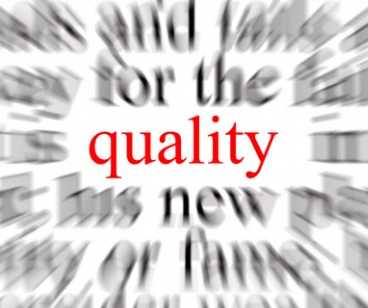Often, I encounter clients who are drawn to the idea of being the lowest-cost provider in their market. It seems logical—lower prices attract more customers, right? But in reality, building your business around being the cheapest option is a dangerous strategy, unless your company is structured explicitly for operational excellence.
Let’s unpack what that really means.
Operational excellence is about delivering consistent value through optimized systems, economies of scale, and ruthless efficiency. Think of Walmart or Amazon. Their scale allows them to squeeze every bit of waste out of the system and still turn a profit. But if you’re a small business without that scale, competing purely on price can lead to a fast race to the bottom.
Worse yet, your pricing could be undercut not by a smart competitor—but by an ignorant one.
That’s right. You might find yourself up against a business owner who doesn’t understand their own costs. They’re underpricing their products or services simply because they haven’t calculated the full cost of delivery, overhead, or customer service. The result? They drive prices down for everyone, including you—and often below what’s sustainable.
Here’s the kicker: they usually go out of business. But by then, they may have already trained the market to expect prices that no rational business can profitably sustain.
The Psychology of Pricing and Customer Expectations
Customers often associate price with quality—the higher the price, the more value and performance they expect. While price-sensitive buyers are certainly out there, a fascinating psychological pattern emerges when expectations aren’t met: people are typically more upset by a bargain that fails than by a premium product that disappoints.
Take this example: someone who pays $10 for what is typically a $100 product may feel cheated if it doesn’t perform as hoped. They believed they scored a great deal, so any shortfall feels like a bigger letdown. On the other hand, a customer who pays $1,000 for that same $100 item is surprisingly more likely to brush off the loss. Why? Because premium buyers tend to view the purchase as part of a broader experience—and if it doesn’t work out, they often chalk it up to a calculated risk or simply move on.
This reaction may seem counterintuitive, but it’s supported by behavioral economics. High-paying customers often internalize the purchase decision—they see themselves as choosing quality and tend to take personal responsibility for that choice. They’re buying not just the product, but also the perceived status, service, or experience that comes with it. In contrast, low-paying customers frequently expect full value despite the discount, and when it doesn’t materialize, they’re far more vocal about their dissatisfaction.
The lesson? Competing on price alone can invite high-maintenance customers and narrow profit margins—two ingredients that are tough to sustain. Quality-focused businesses, on the other hand, attract more forgiving customers, generate fewer complaints, and maintain healthier margins to reinvest in service and support.
What Happens When You Compete on Quality Instead
Rather than slashing prices, consider offering better service, reliability, and overall experience. Here’s what you stand to gain:
- Higher profit margins: With fewer sales needed to hit your revenue goals, you can focus on quality over volume.
- Customer loyalty: People return to businesses that solve their problems well, not just cheaply.
- Fewer returns and complaints: Better products and services mean fewer dissatisfied customers.
- Lower marketing costs: Word-of-mouth becomes a powerful (and free) sales engine when your quality is memorable.
Yes, you’ll face fewer buyers—but they’ll be better ones. These customers value your time and expertise, are less likely to haggle, and are more likely to refer others. That’s a powerful and sustainable business advantage.
Value Over Volume
Instead of trying to be everything to everyone at the lowest cost, focus on delivering unique value. What do you do better than anyone else? Is it speed, customer service, customization, craftsmanship, or knowledge?
Once you know your unique value proposition, build your messaging and pricing around it. Educate your customers about what they’re getting, why it matters, and why it’s worth the price. This takes effort—but it pays off.
As business strategist Michael Porter—of Porter’s Five Forces fame—once said, “Strategy is about making choices, trade-offs; it’s about deliberately choosing to be different.” Competing on price is easy—but standing out for excellence is where real success lives.
So before you slash your prices to win more customers, ask yourself: Can I build a business around quality instead of quantity?
Because in the long run, it’s better to have fewer customers who love you than a flood of customers who bleed your business dry.
Is your business stuck in a price war, or could it become a category leader by focusing on value and quality?












